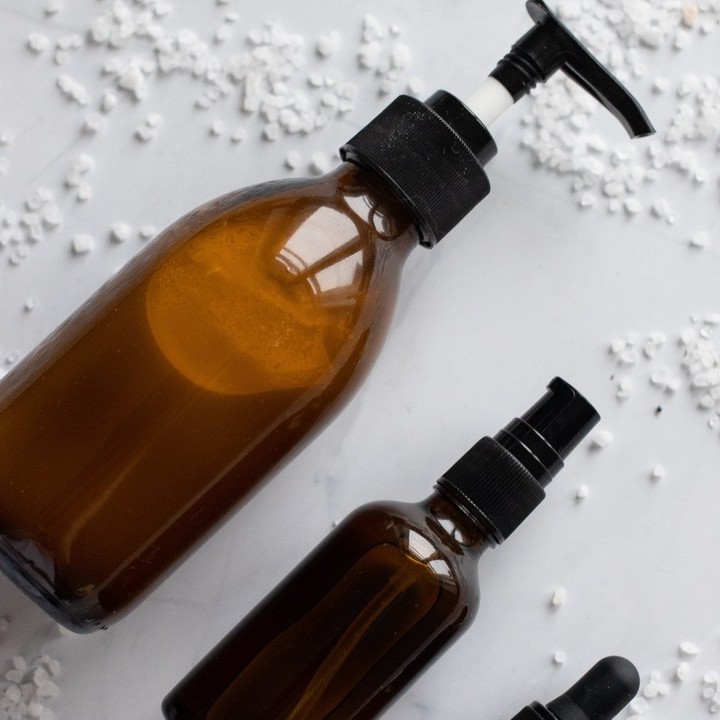
What are The Best Tanning Oils for Different Skin Types?
What are The Best Tanning Oils for Different Skin Types?
Tanning oils have long been a go-to product for those seeking to achieve that sun-kissed glow. However, with the plethora of options available in the market, choosing the right tanning oil tailored to one's skin type can make all the difference in achieving optimal results while maintaining skin health. This article is a comprehensive guide to the best tanning oils for various skin types:
1. Oily Skin:
Oily skin is characterized by an overproduction of sebum, the skin's natural oil. While sebum is essential for maintaining skin health, excessive production can lead to a shiny appearance, enlarged pores, and an increased likelihood of breakouts. Effective care and management can help balance oil production and promote a clearer, more balanced complexion. Let's explore the nuances of oily skin and its optimal care.
Oily skin already produces excess sebum, so it's crucial to choose a tanning oil that won't further clog pores or exacerbate oiliness.
Best Options:
- Non-comedogenic Oils: Look for tanning oils labeled as non-comedogenic. These oils, such as grapeseed or argan oil, are less likely to clog pores and can help balance the skin's natural oils. You can choose Bioderma Photoderm SPF50 Bronz Brume 200 ml
- Light Formulations: Opt for lightweight tanning oils that absorb quickly into the skin, leaving a matte finish.
2. Dry Skin:
Dry skin, also known as xerosis, is a common skin condition characterized by a lack of moisture and lipids, leading to tightness, flakiness, and sometimes itching or irritation. Proper care and hydration are crucial to alleviate discomfort and restore the skin's natural moisture barrier. Let's delve into the intricacies of dry skin and its optimal care.
Dry skin requires intense hydration. The best tanning oils for this skin type will not only promote tanning but also nourish and moisturize.
Best Options:
- Moisturizing Oils: Tanning oils infused with ingredients like coconut oil, shea butter, or vitamin E can deeply hydrate the skin, preventing dryness and flakiness. You can choose Soskin Sun Guard SPF 30 Sun Oil High Protection 150 ml
- Oil-based Serums: Consider oil-based tanning serums or elixirs that combine the benefits of tanning oils with potent moisturizing agents.
3. Sensitive Skin:
Sensitive skin is characterized by heightened reactivity to external and internal factors, leading to symptoms like redness, itching, burning, or dryness. Individuals with sensitive skin often require gentle, soothing products and a careful approach to skincare to minimize irritation and maintain skin health. Let's delve into the intricacies of sensitive skin and its optimal care.
Sensitive skin types are prone to irritation, redness, and allergic reactions. Therefore, gentle formulations are essential.
Best Options:
- Hypoallergenic Oils: Choose tanning oils that are free from fragrances, dyes, and common allergens. Natural oils like jojoba or almond oil can be suitable choices.
- Patch Testing: Always conduct a patch test before fully applying any new product to ensure it doesn't cause adverse reactions.
4. Combination Skin:
Combination skin is characterized by having a mix of skin types on different areas of the face. Typically, the T-zone (forehead, nose, and chin) tends to be oily, while the cheeks may be normal or dry. Managing combination skin requires a balanced approach to address both oily and dry areas effectively. Let's delve deeper into the nuances of combination skin and its care. Combination skin has areas of both dryness and oiliness, so a balanced approach is key.
Best Options:
- Balancing Formulas: Opt for tanning oils that claim to balance skin, often with a mix of moisturizing and sebum-regulating ingredients.
- Spot Application: Consider applying the tanning oil selectively to drier areas while avoiding overly oily regions.
5. Acne-prone Skin:
Acne-prone skin is characterized by a heightened tendency to develop comedones (blackheads and whiteheads), pimples, and deeper, more inflammatory lesions like nodules and cysts. This skin type requires specific attention to prevent breakouts, reduce inflammation, and promote healing. Let's delve into the intricacies of acne-prone skin and its care. Acne-prone skin requires extra caution to ensure that tanning oils don't lead to breakouts.
Best Options:
- Oil-free Formulations: Choose tanning oils that are specifically labeled as oil-free or non-comedogenic.
- Salicylic Acid Infused Oils: Some tanning oils incorporate salicylic acid, a beta hydroxy acid known for its acne-fighting properties. However, it's essential to use such products judiciously and in consultation with a dermatologist.
6. Fair Skin:
Fair skin, often described as porcelain or alabaster, is characterized by its lighter pigmentation. This skin type has its own set of unique attributes, challenges, and care requirements. Understanding and addressing the needs of fair skin can help maintain its beauty and health. Let's explore this further. Fair skin tends to burn easily, so sun protection is paramount when using tanning oils.
Best Options:
- SPF-Infused Oils: Opt for tanning oils with added sun protection, typically labeled with an SPF value. This provides a dual benefit of promoting tanning while minimizing UV-related risks.
- Shorter Exposure Times: Fair-skinned individuals should limit sun exposure and gradually build up tanning time to avoid burns.
7. Mature or Aging Skin:
Aging is an inevitable process, and as our skin matures, it undergoes numerous changes. Understanding these changes and addressing them with appropriate care can help maintain skin health and appearance. Let's delve into the characteristics, challenges, and care strategies for mature or aging skin.
Mature skin benefits from tanning oils that offer anti-aging properties, hydration, and protection.
Best Options:
- Antioxidant-rich Oils: Look for tanning oils infused with antioxidants like vitamin C, green tea extract, or rosehip oil. These ingredients can help combat free radical damage and support skin elasticity. You can choose Lierac (50+Spf) Sunissime Energizing Protective Fluid 40 ml
- Hydrating Formulas: Prioritize tanning oils with intense moisturizing properties to address the natural dryness and thinning associated with aging skin.
General Tips for All Skin Types:
- SPF Consideration: Regardless of skin type, it's crucial to prioritize sun protection. If your chosen tanning oil doesn't contain SPF, layer it with a broad-spectrum sunscreen to guard against harmful UV rays.
- Moderation: Always practice moderation when using tanning oils. Prolonged or excessive sun exposure, even with tanning oils, can lead to skin damage and health risks.
- Consultation: If uncertain about which tanning oil is best for your skin type, consider consulting with a dermatologist or skincare professional for personalized recommendations.
Selecting the Best Tanning Oils for Different Skin Types is a nuanced process that hinges on understanding one's skin type, concerns, and desired outcomes. By aligning with products tailored to individual needs, one can achieve a radiant tan while safeguarding skin health. Always remember that tanning, whether with oils or other methods, should be approached with moderation and adequate sun protection to ensure long-term skin wellness.
 العربية
العربية





